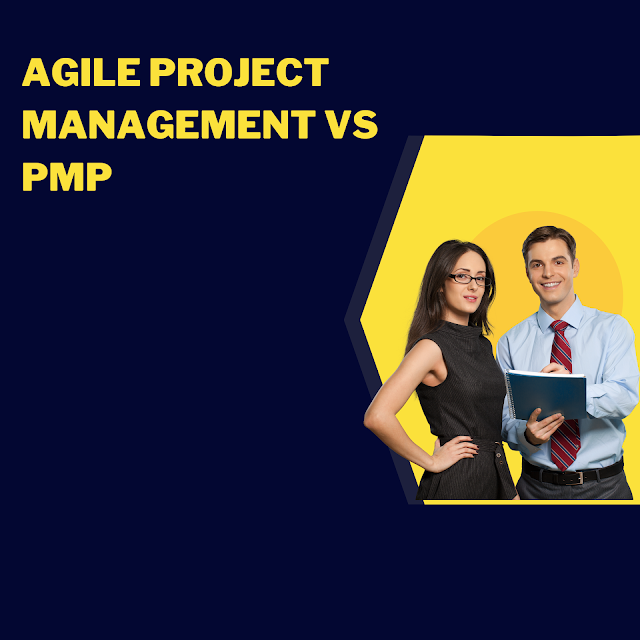Agile Project Management Vs PMP
Insight of Agile Project Management and PMP
Project Management Professional (or simply PMP) is a certification offered by Project Management Institute, PMI, in the field of project management. PMP isn't industry-specific. The frameworks and guidelines that PMP educators teach are applicable to all industries of project management.
PMP is the most coveted project management certification. PMP certification also offers better job opportunities and a higher salary. A PMI survey found that the median salary for people with PMP certification is 25% more than those without it.
The PMP certification demonstrates the knowledge and competence of the individual in project management. This certification provides assurance to peers, employers, and stakeholders that the individual is competent in managing the project.
Agile Project Management (or APM) is a method that iteratively delivers a project through its entire life cycle. Each step in the project's life cycle leads to completion. These methods promote flexibility and speed. Agile's advantage is its ability to account for changes that may be made throughout the project's lifecycle.
This approach aims to provide benefits throughout the project, rather than just at the end. Successful Agile projects show trust, empowerment and flexibility, which is a prerequisite for success. Scrum, eXtreme Programming and Feature Driven Development are some examples of Agile Project Management.
PMP Vs APM
The PMP certification was undisputedly the most valuable certification in project management for a long time.
Agile technologies are gaining popularity and momentum as the industry changes. Agile Technologies are used for project development in most IT projects.
There is also a myth that PMP frameworks and processes follow the waterfall approach.
Agile Project Management would be the best choice in such circumstances. However, there are two things that can be done to counter this idea
Firstly, the PMP follows the PMBOK Guide
PMBOK Guide evolved over time. Although at first, the PMBOK Guide seemed to be a Waterfall model-like guide, PMBOK has changed.
These processes and frameworks are now explained in greater detail. It is now up to the reader to decide whether these processes are Waterfall- or Agile. This allows the project manager to choose the best model for their project.
Secondly, the PMP is not industry-specific
PMBOK's frameworks and processes are therefore applicable to all industries. This is because the software and information technology industries use Agile Technologies in their projects today. PMP and Agile Project Management are applicable in these industries. However, many projects in Construction Management follow the waterfall approach.
The Agile Project Management processes won't be applicable in this industry. However, the frameworks and processes for PMP will apply. PMP allows a person greater flexibility to change industries or prepares them to take on all types of projects in different industries.
Evolution of PMP
PMP isn't industry-specific, but PMI changed the PMP exam in 2020 and a new PMBOK Guide (7th Edition) is coming out in 2021. PMP has a special focus on agile philosophy. 50% of the PMP exam is now based on agile and hybrid processes.
The PMBOK Guide will also place more emphasis on agile philosophy. Agile is the future. Many industries are adopting agile. PMI has integrated agile philosophy into the PMBOK to ensure that PMP-certified people can work in any industry. However, that doesn't mean they are masters of all things. They are still able to use the agile philosophy if required.
Eligibility for PMP and APM
Now let us compare the eligibility criteria for PMP and APM
For PMP
The person must have a four-year degree, 36 months of experience in project management, and thirty-five hours of PMP education. Or the person can have a high school diploma or Associate's Degree (or the global equivalent), along with sixty months of experience in project management and thirty-five hours of PMP education.
For APM
A secondary or associate's degree, or global equivalent, is required. The individual should also have 12 months of project management experience in the last five years. They should also have 8 months experience in managing agile teams over the last three years. Additionally, they should have 21 hours of training in agile practices.
Conclusion
We can conclude that both APM and PMP are valuable in today's world. However, PMP has a slight advantage because it offers more flexibility. Learning Mudra is the best PMP Training Institute. It is essential to have a quality PMP education so you are prepared for the exam.

.png)


Comments
Post a Comment